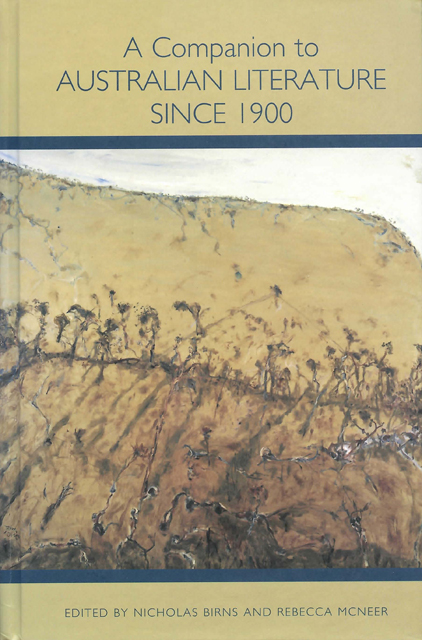Book contents
- Frontmatter
- Dedication
- Contents
- Chronology of Main Events in Australian History, 1901–2005
- Acknowledgments
- Note on the Cover Illustration and Artist
- Introduction
- Part 1 Identities
- Part 2 Writing Across Time
- Part 3 International Reputations
- Part 4 Writers and Regions
- Part 5 Beyond the Canon
- Notes on the Contributors
- Index
3 - From Empire to Nation: The Shifting Sands ofAustralian National Identity
Published online by Cambridge University Press: 10 March 2023
- Frontmatter
- Dedication
- Contents
- Chronology of Main Events in Australian History, 1901–2005
- Acknowledgments
- Note on the Cover Illustration and Artist
- Introduction
- Part 1 Identities
- Part 2 Writing Across Time
- Part 3 International Reputations
- Part 4 Writers and Regions
- Part 5 Beyond the Canon
- Notes on the Contributors
- Index
Summary
It is not impossible for Australians, nourished by a glorious literature and haunted by old memories, to be in love with two soils.
— W. K. Hancock, AustraliaWhich Came First, the nation, or the national literature? Since the publication in 1983 of Benedict Anderson’s slim but formidable disquisition on the role of print culture in the formation of modern nationstates, a discussion of either nation or literature is seldom considered complete without at least a nod to the other term. Thanks to Anderson, the phrase and concept of “Imagined Communities” has thoroughly penetrated our discourse; even before the popularization of his theories, though, many had long acknowledged the intimate links between a nation and its literary production, often attempting to manipulate the association to best effect. Reporting on such manipulations, scholars such as Bill Ashcroft, Gareth Griffiths, and Helen Tiffin have introduced a generation of literature students to the radical notion that the very discipline they’re studying may be itself part of a consciously developed nationalist project, its works written, canonized, and taught in order to concretize a particular idea of nation.
Australian literature, like the Australian nation itself, occupies an interesting and at times contentious place in the taxonomy of national literatures. As a former British colony, Australia is one among many modern nations whose literature is written primarily in English — something that, for many years, marked it simply as “English” literature, a part of a larger British canon. Scholars agree, however, that despite the frequent association of local languages with nationalist movements, a shared language is no barrier to the creation of separate literatures or separate national communities. Moreover, with the evolution of local dialects of English around the globe, the extent to which the English of any two nations is the same is highly variable. It is also true, however, that as a nation whose contemporary culture and literature have been shaped overwhelmingly by British immigrants and their descendants, Australia has developed its own language and voice more subtly than have some others. At the same time, as a country born in the absence of revolutionary war or colonial uprising, it has slipped almost imperceptibly into the community of nations.
- Type
- Chapter
- Information
- A Companion to Australian Literature since 1900 , pp. 61 - 72Publisher: Boydell & BrewerPrint publication year: 2010



